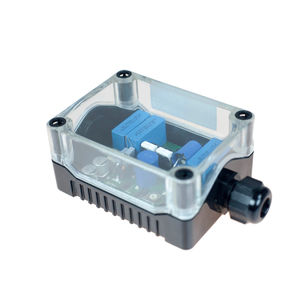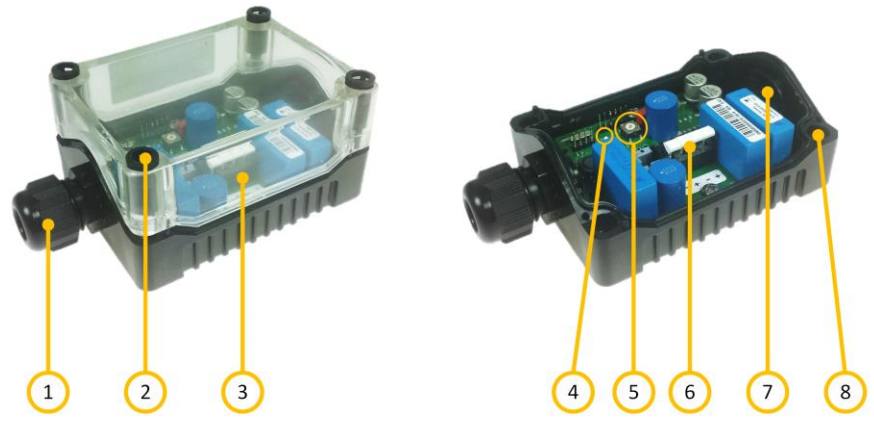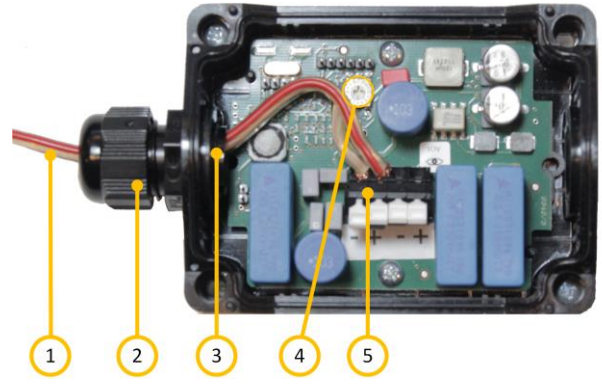ELTSI-1
Exigo Industrial Line End Transponder
- Loudspeaker line end transponder
- Powered from and communicates over the loudspeaker lines
- Small and simple to install
- Rugged and weatherproof housing
The ELTS I-1 line end transponder is designed for use on ships and offshore environments. Hence, the construction is very robust and can handle mobile environments as well as stationary, temperature controlled rooms.
The line end transponder ensures reliable monitoring of the loudspeaker lines. Where impedance measurements may result in an erroneous report of a broken line, the line end transponder will always report the correct health of the loudspeaker loop.
Up to 10 line end transponders may be connected to the same amplifier output, making it possible to branch out the loudspeaker loops.
Contents
Additional documentation
For more documentation, please visit the Zenitel web page: https://www.zenitel.com/product/eltsi-1
Installation
Overview
| 1 | Cable Gland |
| 4 | Lid Retention Screw |
| 3 | Transparent Lid |
| 7 | Status Indicator LED |
| 5 | Address Selector |
| 6 | Connection Terminals |
| 7 | Cable Gland Entry |
| 8 | Mounting Holes |
Placement
The ELTSI-1 Line End Transponder is a rugged device, intended for use in rugged environments. It can therefore be mounted in protected areas, or exposed areas with heavy rain and pollutants. The unit should be placed in such a way that the status indicator can be easily seen after installation. This will ease the maintenance of the system.
The ELTSI-1 unit shall not be mounted in areas classified as Ex areas. If a line end transponder is required in such areas, it must be installed in a flame-proof enclosure (Ex d) according to IEC 60079.
Setting the Address
The address of the unit should be set before mounting as this will make the operation easier. The address is set using the address selector.
- Remove the lid by carefully unscrewing the four lid retention screws.
- Use a small screwdriver to turn the address selector (small arrow on the wheel) to a number between 1 and 10. The address of the unit shall be set according to the system plan.
Connecting the Terminals
If the cable entry is still covered, screw in the cable gland body until it punches the cover out to make a hole for cable access.
- Thread the cable through the cable gland and cable entry of the unit.
- Connect the loudspeaker line to either of the two spring loaded connection terminals.
| 1 | Cable Line | |
| 2 | Cable Gland | |
| 3 | Cable Entry | |
| 4 | Address Selector | |
| 5 | Connection Terminals |


